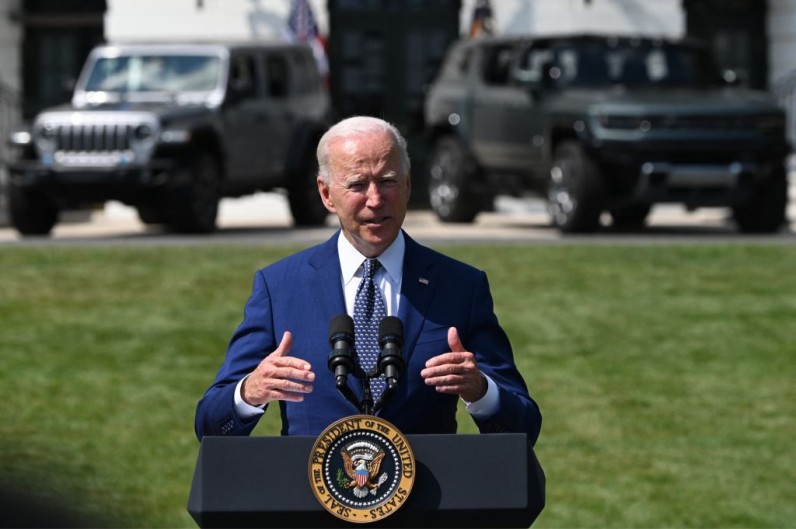The Environmental Protection Agency (EPA) of the United States may consider easing a major climate change regulation that limits emissions from vehicles' tailpipes. Reportedly, this would provide car companies more time to fulfill regulations that would increase sales of their electric vehicles (EVs).
Two sources of The Washington Post have indicated that the agency is considering postponing its plans to mandate a sharp upsurge in EV sales until beyond 2030. The regulation is still in the works and will not be approved until March.

Is it Political Agenda?
This news comes at a time when the Biden administration is under intense pressure to scale down its electrification goals, which have been hit hard by falling EV sales and issues with public charging infrastructure.
At the same time that US President Joe Biden is juggling two prominent agendas--the battle against climate change and the promotion of workers' rights--this also comes as a political shock.
During their heated autumn strike, the United Auto Workers (UAW) raised concerns that high-paying positions would be lost due to the quick transition to EVs. Because electric cars are easier to construct than gas-powered ones and because many EV factories are located in southern regions that are not exactly known for their support of unions, the labor coalition has been hesitant to embrace EVs.
A proposed regulation put forth by the EPA last April sought to increase the share of EVs in the market for new passenger cars and light-duty trucks to 67% by the year 2032. Shortly after, UAW President Shawn Fain said in an email that the union would not be endorsing Biden's reelection candidacy due to "concerns with the electric vehicle transition."
For interagency review, the final rule was delivered to the White House by the EPA in January. In the days that followed, the UAW decided to back Biden.
Fighting Climate Change
Meanwhile, the director of the environmental organization Center for Biological Diversity, Dan Becker, recently pleaded with EPA to keep the EV transition schedule on track. One of the major contributors to the nation's greenhouse gas emissions, which are responsible for climate change, he said, are vehicles driven by gasoline and diesel.
"It will mean more pollution, more sick kids, more global warming, more oil use," Becker told The Washington Post.
Working with the Department of Transportation and state authorities from California, EPA establishes restrictions on emissions from tailpipes. The state of California has the power to impose stricter pollution regulations than the federal government, as granted by the Clean Air Act. The goal of the California Air Resources Board is to make it illegal to sell brand-new, gas-only vehicles by the year 2035.







Join the Conversation